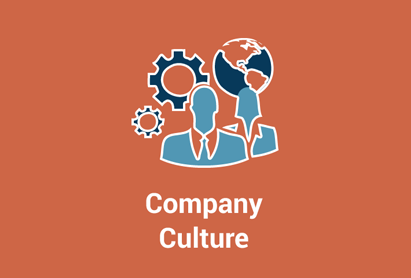
Turning Around a Corporate Culture of Complaints Before It Entirely Kills the Company

Workplace Safety Topics for Skeptical Managers
Preserving Your Organizational Culture During Company Growth

- Business Culture
- change management
- change management models
- change management plan
- change management process
- change management tools
- change organization
- Communication
- company culture
- company growth
- corporate culture
- culture organization
- diverse teams
- hiring
- Human Resources
- leading change management
- manage change effectively
- manage change workplace
- manage organizational change
- organization culture
- organizational culture
- organizational culture and leadership
- organizational culture articles
- organizational culture assessment
- organizational culture change
- organizational culture theory
- preserving company culture
- recruiting
- types organizational culture
- values
- Vision


Preserving a company’s culture as it grows can be tricky, especially if that growth happens all at once. Image source: Flickr CC user Cristina Bejarano
I’d been a dedicated customer of a local food company from the day they opened. Lily had started out as a small-scale gardener and baker, selling her vegetables and sweetbreads at area farmers’ markets. That’s where I discovered her, and I made her table a regular stop on my Saturday morning rounds. As demand grew, she hired a few friends to help her expand her garden and bakery. After a few years, she had requests from local restaurants, a regular delivery route, and lots of paperwork. She hired yet another friend, this time to act as business manager.
Every week as I picked up my produce and sweetbreads, I’d ask her how business was going. Usually, she answered with an enthusiastic “Great!” Then it happened. A regional magazine featured her business in an issue on Locavores. Orders soared. Grocery stores wanted to carry her breads. More restaurants called to ask about her produce. She bought a neighboring farm and prepared to expand. Suddenly, she was going to double the size of her company. She was out of friends to hire. When I asked Lily about her business, she seemed nervous for the first time in a decade or more. She wondered how her company culture could survive the coming expansion.
The Best Defense
When companies don’t take explicit steps to safeguard company culture as they grow, the culture can either die or change rapidly. When you double your size, new hires soon outnumber the old. If you add them too quickly, there’s no time to assimilate each individual into the existing culture. Without a plan, a few influencers from among the new group could suddenly change your culture beyond recognition.
To maintain your company culture, make a plan before you start hiring. Decide:
- Which parts of your company culture are most important. You won’t be able to keep everything exactly the same as you grow, but some cultural traits are more important than others. For instance, at Lily’s farm, she valued the close-knit, family feel of the company, and wanted to keep that as she grew. Other parts of the culture, such as a shared love of the local high school football team, could safely fall by the wayside as they expanded and hired a greater variety of people. Start by highlighting three key things that you love about your current culture and focus on those.
- How you will communicate these traits and values to new hires. Your on-boarding process is essential for preserving your company culture as you grow. From the first contact with a potential hire through the first six months of employment, you must reinforce the company culture and help new employees integrate into it. For instance, if Lily wanted to preserve the family atmosphere as the company grew, she’d have to create an orientation process that lets new hires join the larger culture. One way to do this might be to hire in small groups and use mentors to help integrate new employees into the larger company. They’ll also need chances to see how the culture of mutual support plays out in high-stress situations. Lily needed her new employees to see the existing culture as a positive force, something that they would want to be a part of.
- How you’ll identify influencers among new hires and keep them engaged in the culture. In every group of new hires, some people are influencers. They have the ability to change the opinions and direct the efforts of their coworkers, even when they’re not in charge. Plan to spot these influencers early, and engage them in the company culture. That way, they’ll work with you to preserve it.
- How you, as a leader, can remain involved and continue to give personal attention to a larger workforce. As the company grows, leaders have a harder time getting to know each employee or keeping up with personal details. You’ll need to work through managers more, and you’ll need a good flow of information so that you can still keep that personal touch, even when you don’t know every every individual in the company well.
It’s Possible to Grow without Losing Your Company Culture
It is possible to grow without losing your company’s culture. For instance, over the last 70 years, Holiday World & Splashin’ Safari in Santa Claus, Indiana, has grown from a small, local amusement park to an internationally known, award-winning vacation destination. The park hires thousands of seasonal employees every year, yet still maintains the same family atmosphere and culture that it’s had since the beginning. How?
- The company communicates its values throughout the hiring process
- It’s not afraid to hire and fire based on cultural fit.
- The company stresses clear communication and accountability at all levels.
- The current owner still takes the time to personally train each new staff member in routine tasks like cleaning. In fact, her training sessions are locally known, and in some families three generations can all say that they learned to sweep from Mrs. Koch.
If Lily emulates these practices, she should be able to maintain the positive parts of her company culture even as the company grows.
Your corporate culture is what made you successful until now. You can’t afford to lose it in an ill-considered expansion. If you need support in analyzing your current culture, understanding your strengths, and hiring new employees who will support that culture, Applied Vision Works has the tools and experience you need.



